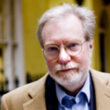The age of sustainable development
(Book)
338.927 SACHS
1 available
Copies
| Location | Call Number | Status |
|---|---|---|
| Central - Adult Nonfiction | 338.927 SACHS | Available |
Description
More Details
Notes
Table of Contents
Similar Titles From NoveList
Similar Authors From NoveList
Published Reviews
Choice Review
In a book of incredible breadth, Sachs (Columbia Univ.) delivers a sobering account of the impact of human activity upon the balance of life on Earth. Using metrics and diagrams from his own and others' research, he offers an accessible entry into the literature on sustainable development. However, readers should not expect to find theoretical analyses of the ultimate causes of the world economy's unsustainable trajectory. Instead, they will be exposed to empirical descriptions of the growing impact of human systems upon their natural environment and prescriptions to reverse current trends. The author relies impressively upon economics, political science, demography, sociology, and ecology to illustrate situations of global poverty, environmental stress, and unequal economic opportunities. Furthermore, Sachs draws from his experience as a UN adviser to express cautious optimism in the ability of the world to move toward the Sustainable Development Goals crafted in Rio in 2012. Overall, Sachs's book provides a basic but ambitious argument: to reverse current unsustainable trends, global warming must be mitigated, extreme poverty must end, gender imbalance must be corrected, and access to basic health care and education must be granted to all. Summing Up: Highly recommended. Lower-division undergraduates and above; general readers. --Quentin M. Duroy, Denison University
Booklist Review
*Starred Review* Forecasting Change You can glean a fair sense of the scope of economist Jeffrey D. Sachs' expertise and concerns simply by listing his best-selling books: The End of Poverty (2005), Common Wealth (2008), The Price of Civilization (2011). Clues abound in his professional titles, too. At Columbia University he is director of the Earth Institute, Quetelet Professor of Sustainable Development, and Professor of Health Policy and Management. He also serves as special adviser to Secretary-General Ban Ki-moon of the UN, who provides a bracing yet encouraging foreword to Sachs' most comprehensive and prescriptive book to date. All that Sachs has learned and experienced during 30 years of geopolitical endeavors shape and animate this richly informative and clarifying look at sustainable development what it is, why we need it, and how we can attain it. Here's the central question: Is there a way to change course, a way to combine economic development with environmental sustainability? The symbiosis between economics and ecology, most urgently between unchecked capitalism and global warming, has been examined by such environmental writers as Bill McKibben (Deep Economy, 2007) and Naomi Klein (This Changes Everything, 2014). Now Sachs brings a battery of hard data to the increasingly pragmatic conversation about sustainability versus business as usual. In this large, methodically argued volume, Sachs reveals the full extent of the global predicament of worsening income inequality, poverty, and hunger in an age of rapidly decreasing natural resources, from groundwater to biodiversity. He also tracks precisely how large-scale economic activity is changing the Earth's climate, water cycle, nitrogen cycle, and even its ocean chemistry. And he makes it crystal-clear that environmental crises are being felt by the rich and poor alike. The Age of Sustainable Development is a weighty book from a university press, replete with acronyms and charts. But the former are useful enough and the latter, accompanied by fascinating maps and photographs, are genuinely illustrative, often dramatic. And Sachs' prose is far from academic; heck, he even uses exclamation points! As in, . . .for a species that depends on the beneficence of nature, . . . we are doing a poor job of protecting the physical basis of our very survival! Sachs makes his case with numbers, but he fully elucidates the economic measurements he employs, and his focus is wholly ethical, his approach holistic. Sustainable development, as he emphasizes throughout this detailed presentation, requires both scientifically and morally based problem solving. It must entail social inclusion and equality, good governance in both the public and private sectors, and a wave of sustainable technologies . . . to relieve massive human pressures and human-caused destruction of the Earth's ecosystems. The title of this foundational resource is meant to be hopeful and persuasive. There is no question that working toward sustainable development is the overarching challenge and responsibility of humankind, and the only way forward is to cultivate awareness, education, and motivation. Sachs' mammoth inquiry can be overwhelming as he reveals one shocking reality after another, but this is also a book that erodes complacency, disbelief, and fatalism. And Sachs does map a way forward, both in procedural terms and inspirationally. In closing, he quotes one of his heroes, President John F. Kennedy, who said in his Peace Speech on June 10, 1963, No problem of human destiny is beyond human beings. Man's reason and spirit have often solved the seemingly unsolvable, and we believe they can do it again. . . So let us not be blind to our differences, but let us also direct attention to our common interests and the means by which those differences can be resolved. Sweeping, enlightening, affecting, and invaluable, The Age of Sustainable Development should be available to everyone and consulted repeatedly.--Seaman, Donna Copyright 2015 Booklist
Publisher's Weekly Review
Sachs (The End of Poverty), an economist and director of Columbia University's Earth Institute, argues that it's time for humankind to reconcile its needs with those of the planet, in this sprawling manifesto. He surveys the great dilemma facing civilization: how to ensure broadly inclusive economic growth, especially in the poorest countries, without destroying the natural environment and deranging the climate on which survival depends. Deploying clear, straightforward prose and a wealth of statistics-the book's countless tables and graphs are an eye-opening education in themselves-he follows the threads of this knotty problem from their scientific and economic roots to their potential solutions in new technologies and a mix of market dynamics and vigorous government action. Sachs balances alarming forecasts with signs of progress, giving brief, even-handed rundowns of policy prescriptions such as carbon taxes, foreign aid to help Africa escape its "poverty trap," and reforms of America's hideously expensive private health-care system. The overstuffed book suffers from a scope that precludes detailed analysis of the many contentious debates over sustainability policies and technologies, particularly in its inadequate assessments of the pros and cons of wind, solar, and nuclear power. Still, Sachs's overview demonstrates the seriousness of the sustainability crisis while illuminating workable paths to resolving it. Maps and photos. (Mar.) © Copyright PWxyz, LLC. All rights reserved.
Library Journal Review
This book is a comprehensive introduction to the field of sustainable development by one of its leading scholars, advocates, and practitioners, Sachs (Quetelet Professor of Sustainable Development, also health policy and management, Columbia Univ.; director, United Nations Sustainable Development Solutions Network; The End of Poverty). Sustainable development refers to balancing economic development, environmental sustainability, and social inclusion-all topics on which Sachs has written extensively. The work begins with an overview and history of development, includes chapters on several specific facets of sustainable development-including biodiversity and climate change-and concludes by advancing ten related goals. These move beyond the UN's Millennium Development Goals to include management of natural resources and transformation of governance. Sachs covers a wide range of topics in considerable depth. Many colorful graphs and maps supplement the technical material. The author's prescriptions for sustainable development stand in contrast to the more pessimistic views of aid expressed by William Easterly in The White Man's Burden and the focus on individual decisions by Abhijit V. Banerjee and Esther Duflo in Poor Economics. VERDICT A synthesis and update of Sachs's work that also serves as an excellent comprehensive introduction. Recommended.-Jennifer M. Miller, Univ. of Southern California, Los Angeles © Copyright 2015. Library Journals LLC, a wholly owned subsidiary of Media Source, Inc. No redistribution permitted.
Kirkus Book Review
A leading economist offers a brilliant analysis of the worldwide need to balance economic development and environmental sustainability.Sustainable development is "the greatest, most complicated challenge humanity has ever faced," writes Sachs (Sustainable Development, Health Policy and Management/Columbia Univ.; To Move the World: JFK's Quest for Peace, 2013, etc.). In an important, comprehensive and remarkably accessible booka standout in a sea of jargon-laden titles that fail to explain and vivify this enormously complex topicthe author writes lucidly about a staggering array of intertwined challenges, including poverty, overpopulation, species extinction, overextraction from oceans, urbanization, social mobility and climate change. Sachs stresses that sustainable development is "inherently an exercise in problem solving," and he calls for a holistic approach and new ideas to produce "prosperous, inclusive, sustainable, and well-governed societies." He explains the history of world economic development, the factors that help make some nations more impoverished than others (such as the landlocked nature of much of Africa), the science of climate change, how technical advances have fostered the depletion of ocean fisheries, the "unfinished business" of social mobility, and the pressing need for sustainable technologies and higher farm yields (especially in sub-Saharan Africa and South Asia). In each instance, the author offers telling details and anecdotes accompanied by useful charts, maps and photographs that drive home his points. Two photos of Shenzhen, China, taken three decades apart, convey the astonishing growth of that major southern city. Examining each aspect of his topic in detail within the context of the Sustainable Development Goals formulated at the Rio+20 Summit in 2012, Sachs argues that solutions are feasible and affordable, despite strong opposition by vested interests and the inaction of governments. Required reading for policymakers and students, and general readers will finish the book realizing they actually understand what sustainable development is all about. Copyright Kirkus Reviews, used with permission.
Booklist Reviews
*Starred Review* Forecasting Change You can glean a fair sense of the scope of economist Jeffrey D. Sachs' expertise and concerns simply by listing his best-selling books: The End of Poverty (2005), Common Wealth (2008), The Price of Civilization (2011). Clues abound in his professional titles, too. At Columbia University he is director of the Earth Institute, Quetelet Professor of Sustainable Development, and Professor of Health Policy and Management. He also serves as special adviser to Secretary-General Ban Ki-moon of the UN, who provides a bracing yet encouraging foreword to Sachs' most comprehensive and prescriptive book to date. All that Sachs has learned and experienced during 30 years of geopolitical endeavors shape and animate this richly informative and clarifying look at sustainable development—what it is, why we need it, and how we can attain it. Here's the central question: "Is there a way to change course, a way to combine economic development with environmental sustainability?" The symbiosis between economics and ecology, most urgently between unchecked capitalism and global warming, has been examined by such environmental writers as Bill McKibben (Deep Economy, 2007) and Naomi Klein (This Changes Everything, 2014). Now Sachs brings a battery of hard data to the increasingly pragmatic conversation about sustainability versus "business as usual." In this large, methodically argued volume, Sachs reveals the full extent of the global predicament of worsening income inequality, poverty, and hunger in an age of rapidly decreasing natural resources, from groundwater to biodiversity. He also tracks precisely how "large-scale economic activity is changing the Earth's climate, water cycle, nitrogen cycle, and even its ocean chemistry." And he makes it crystal-clear that environmental crises are being "felt by the rich and poor alike." The Age of Sustainable Development is a weighty book from a university press, replete with acronyms and charts. But the former are useful enough and the latter, accompanied by fascinating maps and photographs, are genuinely illustrative, often dramatic. And Sachs' prose is far from academic; heck, he even uses exclamation points! As in, ". . .for a species that depends on the beneficence of nature, . . . we are doing a poor job of protecting the physical basis of our very survival!" Sachs makes his case with numbers, but he fully elucidates the economic measurements he employs, and his focus is wholly ethical, his approach holistic. Sustainable development, as he emphasizes throughout this detailed presentation, requires both "scientifically and morally based problem solving." It must entail social inclusion and equality, good governance in both the public and private sectors, and a "wave of sustainable technologies . . . to relieve massive human pressures and human-caused destruction of the Earth's ecosystems." The title of this foundational resource is meant to be hopeful and persuasive. There is no question that working toward sustainable development is the overarching challenge and responsibility of humankind, and the only way forward is to cultivate awareness, education, and motivation. Sachs' mammoth inquiry can be overwhelming as he reveals one "shocking reality" after another, but this is also a book that erodes complacency, disbelief, and fatalism. And Sachs does map a way forward, both in procedural terms and inspirationally. In closing, he quotes one of his heroes, President John F. Kennedy, who said in his "Peace Speech" on June 10, 1963, "No problem of human destiny is beyond human beings. Man's reason and spirit have often solved the seemingly unsolvable, and we believe they can do it again. . . So let us not be blind to our differences, but let us also direct attention to our common interests and the means by which those differences can be resolved." Sweeping, enlightening, affecting, and invaluable, The Age of Sustainable Development should be available to everyone and consulted repeatedly. Copyright 2014 Booklist Reviews.
Library Journal Reviews
This book is a comprehensive introduction to the field of sustainable development by one of its leading scholars, advocates, and practitioners, Sachs (Quetelet Professor of Sustainable Development, also health policy and management, Columbia Univ.; director, United Nations Sustainable Development Solutions Network; The End of Poverty). Sustainable development refers to balancing economic development, environmental sustainability, and social inclusion—all topics on which Sachs has written extensively. The work begins with an overview and history of development, includes chapters on several specific facets of sustainable development—including biodiversity and climate change—and concludes by advancing ten related goals. These move beyond the UN's Millennium Development Goals to include management of natural resources and transformation of governance. Sachs covers a wide range of topics in considerable depth. Many colorful graphs and maps supplement the technical material. The author's prescriptions for sustainable development stand in contrast to the more pessimistic views of aid expressed by William Easterly in The White Man's Burden and the focus on individual decisions by Abhijit V. Banerjee and Esther Duflo in Poor Economics. VERDICT A synthesis and update of Sachs's work that also serves as an excellent comprehensive introduction. Recommended.—Jennifer M. Miller, Univ. of Southern California, Los Angeles
[Page 117]. (c) Copyright 2014. Library Journals LLC, a wholly owned subsidiary of Media Source, Inc. No redistribution permitted.Publishers Weekly Reviews
Sachs (The End of Poverty), an economist and director of Columbia University's Earth Institute, argues that it's time for humankind to reconcile its needs with those of the planet, in this sprawling manifesto. He surveys the great dilemma facing civilization: how to ensure broadly inclusive economic growth, especially in the poorest countries, without destroying the natural environment and deranging the climate on which survival depends. Deploying clear, straightforward prose and a wealth of statistics—the book's countless tables and graphs are an eye-opening education in themselves—he follows the threads of this knotty problem from their scientific and economic roots to their potential solutions in new technologies and a mix of market dynamics and vigorous government action. Sachs balances alarming forecasts with signs of progress, giving brief, even-handed rundowns of policy prescriptions such as carbon taxes, foreign aid to help Africa escape its "poverty trap," and reforms of America's hideously expensive private health-care system. The overstuffed book suffers from a scope that precludes detailed analysis of the many contentious debates over sustainability policies and technologies, particularly in its inadequate assessments of the pros and cons of wind, solar, and nuclear power. Still, Sachs's overview demonstrates the seriousness of the sustainability crisis while illuminating workable paths to resolving it. Maps and photos. (Mar.)
[Page ]. Copyright 2014 PWxyz LLCReviews from GoodReads
Citations
Sachs, J. (2015). The age of sustainable development . Columbia University Press.
Chicago / Turabian - Author Date Citation, 17th Edition (style guide)Sachs, Jeffrey. 2015. The Age of Sustainable Development. New York: Columbia University Press.
Chicago / Turabian - Humanities (Notes and Bibliography) Citation, 17th Edition (style guide)Sachs, Jeffrey. The Age of Sustainable Development New York: Columbia University Press, 2015.
Harvard Citation (style guide)Sachs, J. (2015). The age of sustainable development. New York: Columbia University Press.
MLA Citation, 9th Edition (style guide)Sachs, Jeffrey. The Age of Sustainable Development Columbia University Press, 2015.

































